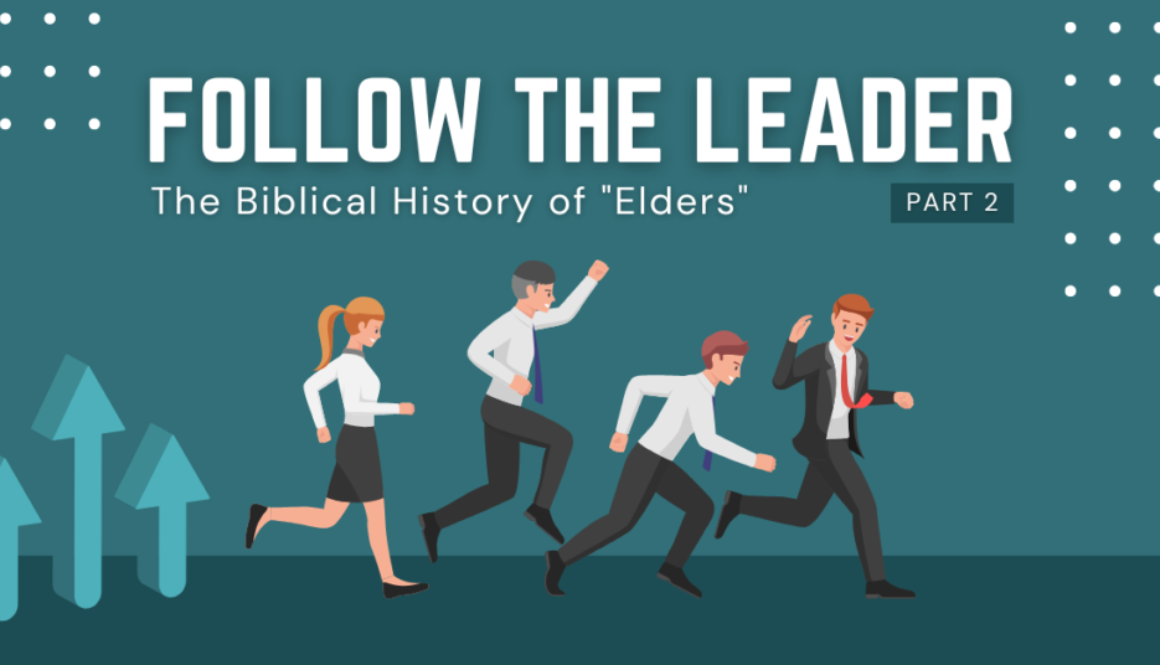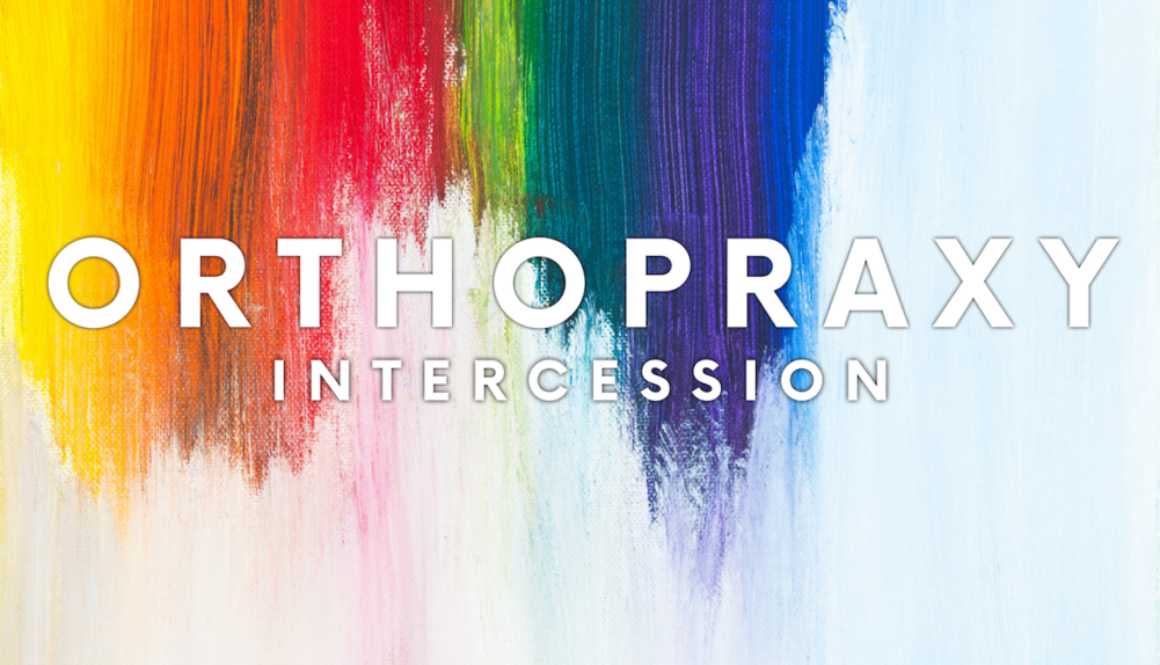Return to The Word
One of the most significant calls on my life as an apostolic leader in a small corner of the church is not to lead leaders or plant churches. It is to make disciples.
I love discipleship. I love helping believers in Jesus learn to “grow up” in Him (Ephesians 4:15). After all, the goal of discipleship is to become like Him in the maturity of our faith and through a transformed life.
The problem with discipleship is that it is often a slow process and never a straight line from lost sinner to mature saint. There are, of course, significant leaps forward that people take. There are also seasons of baby steps and seasons of stumbling backward.
A true disciple-maker knows that although some seasons may be discouraging, the fruit of following the Holy Spirit and helping someone grow in Christ is a delight and will come with eternal rewards.
However, the challenge for us in 2024 is that with modern information technology, including instant access to everything on our smartphones and the immediate and effortless knowledge base provided by AI technology, it has become increasingly tedious to walk someone slowly and patiently through personal transformation.
We live in an age where a few moments of digital exploration can deliver almost anything humanity has ever known to us. While this is majorly beneficial in many aspects of life, it also increases our temptation of Christians to fall into the Renaissance-era foundations of modernity, believing that knowledge of truth alone is the goal. This is modern-day Christian Gnosticism.
We have thousands of self-proclaimed theologians who never even crack open the Bible because they, instead, have read every book and received endless teachings about the Bible, and they believe that is enough.
In the same way, we have self-proclaimed Christians who have learned so much about Jesus – through TikTok preachers and social media memes – yet they do not know Jesus! They never pray. They never wait on Him in the presence of the Holy Spirit. They know all about Jesus but don’t have time to slow down and get to know Him personally.
That is not, and cannot, be considered discipleship!
Jesus gave a two-part mandate to some of the early Jewish believers who followed Him in John 8:31-32:
“So Jesus said to the Jews who had believed him, ‘If you abide in my word, you are truly my disciples, and you will know the truth, and the truth will set you free.'”
Advertisement:
The first part of this mandate is: “If you abide in my word, you are truly my disciples.”
The Greek word here is “logos,” which can mean either “word” or “message.” Jesus was telling these Jewish believers that to be His disciples, they not only had to know the scriptures but also conform their thinking and faith to His understanding of the scriptures.
Jesus was a Rabbi in the Jewish culture. Being a disciple of any particular Rabbi meant that you would live with them, learn from them directly, observe their walk of life, and conform your own lifestyle according to that Rabbi’s interpretation of the scriptures.
Notice that Jesus doesn’t tell them they must “know my word.” He said you must “abide” in it. This distinction gives us clarity on how the mandate is to be received.
The Greek word for “abide” is “menō,” which means “remain, stay, reside,” and, in some uses, is translated as “wait.” When Jesus says His disciples must “abide” in His word, it implies we must intentionally and continually live in His word and live out His word.
Jesus was not offering an instant transfer of His message from the Bible to their brains before moving on to something else. We are not transformed by what we know. We are transformed by what we continually and diligently focus on and meditate on. (Romans 12:2)
This leads to the second part of Jesus’ mandate: “and you will know the truth, and the truth will set you free.”
At a surface level, this seems to imply that our freedom in Christ comes from our knowledge of the truth. Therefore, we could assume, as do many in our culture, that the more truth you know, the freer you should be. The problem is that a mental understanding of the truth of God’s word has never actually set anyone free from the power of sin, death, and the devil. Just ask the Jewish people!
Advertisement:
The nation of Israel had the sole revelation of God’s word in the Old Testament, which God had revealed over thousands of years through Moses and the prophets. They built their whole culture around these scriptures, and their scholars knew every “jot and tittle” of the law. Yet transformation into God’s righteousness never came to the nation, nor the individual Jewish people.
Paul makes this case repeatedly in the book of Romans when He speaks of “the law,” which refers to the Teachings of Moses in the first five books of the Bible:
“For by works of the law no human being will be justified in his sight, since through the law comes knowledge of sin. (Romans 3:20)
Paul is saying that no knowledge of the law cannot transform you. All it can do is show you how deeply lost you are by revealing your sinfulness.
So what’s the point?
Jesus says if you will abide in My word, or “My understanding and teaching of the word,” then you are “My disciple.” But when you do that, He says that something else will happen that has never happened to any other disciple of any other Rabbi. Others only taught “knowledge” of the scriptures and a legalistic dedication to self-discipline. Jesus said that when you abide in “My word,” you will know the truth, and this truth will actually set you free from sin’s power and to live righteously before God.
So what makes this different?
Without spending too much time explaining the Greek language here, let me give you my summary of what Jesus says: “If you put your faith in My teaching, and you make it your goal to live continually in what I reveal to you, you will have an intimate experience with the only truth there is, and it will reshape your reality, setting you free.”
So, what ” truth ” would we encounter that sets us free? It is Jesus Himself!
“Jesus said to him, ‘I am the way, and the truth, and the life. No one comes to the Father except through me.'” (John 14:6)
Jesus’ message regarding the purpose of the scriptures was always that they would point people to Himself.
In John 5, Jesus tells the religious leaders of Israel that although they think they know the scriptures, something is missing in how they approach them. They do not honestly know the God of the scriptures, nor does God’s word “abide” in them (transforming and saving them), because they ignore all the evidence that the scriptures point to Jesus directly! (John 5:37-40)
He tells these scholars, without mincing words, that their theological studies are fruitless to save them because they are not leading to faith or a transforming encounter with Him!
“You search the Scriptures because you think that in them you have eternal life; and it is they that bear witness about me, yet you refuse to come to me that you may have life.” (John 5:30-40)
In contrast, whenever Jesus covertly approached the disciples on the road to Emmaus, after His resurrection, the Bible tells us that “beginning with Moses and all the Prophets, he interpreted to them in all the Scriptures the things concerning himself” (Luke 24:27). When later recounting this event, though they didn’t recognize Him personally in that moment, they knew something deeper was going on than just hearing a sermon. Something inside them was being drawn to Him. “They said to each other, ‘Did not our hearts burn within us while he talked to us on the road, while he opened to us the Scriptures?'” (Luke 24:32)
For Scriptures to be rightly known, they must lead us to know Him!
Advertisement:
So, what does all of this have to do with discipleship?
My point is that while you can gain all the possible knowledge there is about the scriptures — about God, about Jesus, about His saving grace, about the Holy Spirit — it will not be enough to make you a disciple of Christ, nor will it set you free from sin, death, and the devil.
You cannot just know about these things. You must abide deeply in the Word of God with faith, expecting it to lead you deeper in your relationship with Christ through the power of the Holy Spirit so that you can know the reality of the Gospel and be set free.
If you do not abide in the Word of God, being transformed by the power He provides, then you are not His disciple. You are not saved. You are not born again. You are not free. You are deceived, just like the Jewish leaders were for centuries.
We live in a world that believes information is power. The more you know, the more data you collect, the more information at your disposal, the more power you are believed to have. Yet Jesus says it is not information that matters. It is intimate, personal, relational knowledge of the Truth: Him.
We cannot be discipled by 90-second TikTok videos. We cannot grow in Christ through memes and algorithmic revelation. We reach maturity in Him daily – slowly and tediously – by studying His revelation in scripture and asking Him to enlighten our minds and hearts to come closer to Him. As we get close to Him, we will become like Him! (2 Corinthians 3:8) As we become like Him, we will be set free from the grip of sin, from the devil’s domination, and the fear of death, because we know that eternity with Him awaits.
If you want to be His disciple, get in His Word and let it bring you into an encounter with Him. Anything less is fruitless.
If you’re enjoying the content I produce, a little caffeine to keep me going would be appreciated!
Advertisement:
© Anthony Scott Ingram 2024. All Rights Reserved.
Unless otherwise indicated, all Scripture quotations are from The Holy Bible, English Standard Version®, copyright © 2001 by Crossway Bibles, a publishing ministry of Good News Publishers. Used by permission. All rights reserved.”
Please note that I do get a small kickback from Amazon for any purchases made using the links on this post. Should you choose to purchase from them, I just want to say thank you for further supporting my work in ministry!










